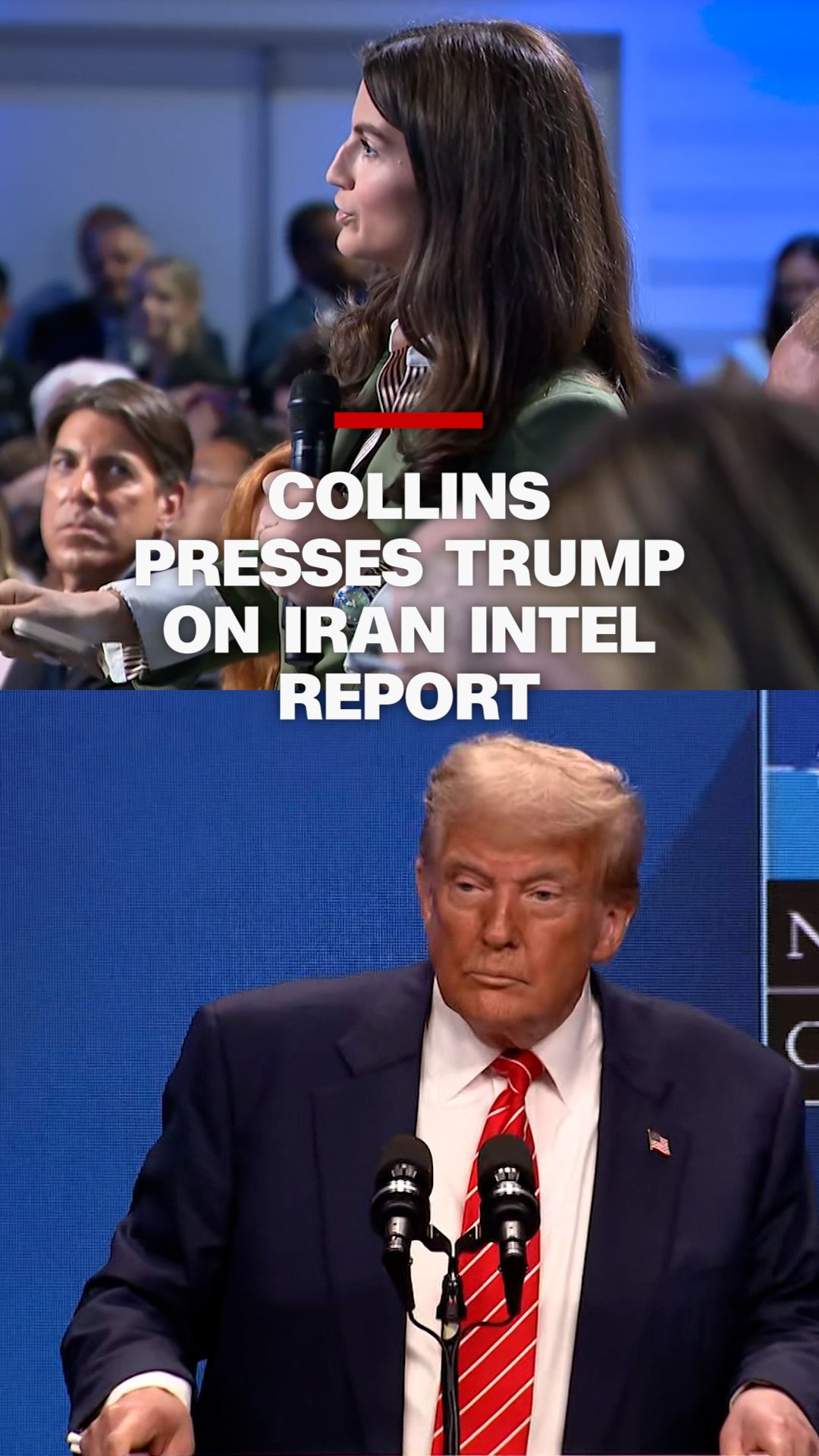Articles in this Cluster
27-06-2025
Karim Sadjadpour argues that Iran repeatedly reshapes U.S. presidencies, and Trump’s second term is no exception as the Iran-Israel war intensifies. Israeli persistence and Iranian defiance have forced a shift in Trump’s strategy, narrowing his options. Both action and inaction carry risks: striking Iran could escalate a regional war and entangle the U.S., while restraint could embolden Tehran and its proxies, undermining deterrence and allies’ confidence. The piece warns that, like past presidents, Trump may find his agenda consumed by Iran’s destabilizing influence and the cascading consequences of any move he makes.
Entities: Donald Trump, Iran, Israel, Karim Sadjadpour, United States • Tone: analytical • Sentiment: neutral • Intent: analyze
27-06-2025
H.R. McMaster argues that despite Donald Trump’s bombastic rhetoric, many of his core objectives—secure borders, tougher stance on drugs, deregulation, stronger military and missile defense, fair trade, resilient manufacturing and supply chains, and energy security—align with broad U.S. and allied interests. McMaster suggests policymakers should exploit the gaps between Trump’s consistent goals and his inconsistent methods to strengthen the transatlantic alliance: emphasize equitable burden-sharing, defense modernization, and industrial resilience to “sell” cooperation as serving Trump’s priorities. By framing NATO investments, smarter tech, and tighter supply chains as advancing American strength and fairness, allies can navigate the contradictions in Trump’s worldview and deepen collective security.
Entities: H.R. McMaster, Donald Trump, NATO, transatlantic alliance, border security • Tone: analytical • Sentiment: neutral • Intent: analyze
27-06-2025
- A surprise ceasefire ended a 12-day Israel-Iran war on June 23, announced abruptly by Donald Trump on social media, catching both governments off guard.
- The truce leaves major uncertainties: the extent of damage to Iran’s nuclear program, the durability of deterrence on both sides, and the political fallout for Israel, Iran, and the United States.
- The war featured rapid escalation and outside pressure; assessments of Iran’s nuclear setback vary widely and may remain unknowable.
- Regional stability, Iran’s internal regime resilience, and U.S. influence—amplified by Trump’s personal intervention—now hinge on how each player interprets the outcome and recalibrates strategy.
Entities: Israel, Iran, Donald Trump, United States, ceasefire • Tone: analytical • Sentiment: neutral • Intent: inform
27-06-2025
The article argues that after joining Israel in striking Iranian nuclear sites, President Trump must pair military action with a broader strategy to avoid regional war and deter Iran’s nuclear ambitions. Bombs and humiliation alone risk escalation; Washington should combine pressure with credible diplomatic off-ramps, clear red lines, and incentives that address Iran’s security concerns while constraining its nuclear program. The piece urges a plan that reassures regional allies, limits proxy chaos, and offers Iran a pathway to de-escalation and economic relief in exchange for verifiable nuclear limits—warning that absent such a strategy, the Middle East could slide into a wider, costlier conflict.
Entities: Donald Trump, Iran, Israel, Washington, Middle East • Tone: analytical • Sentiment: negative • Intent: warn
27-06-2025
The article weighs whether Iran’s unpopular, corrupt regime is near collapse amid Israel’s shock-and-awe strikes and U.S. pressure. Israel claims air supremacy over Tehran; shops are shut and civilians are fleeing, while some Iranians openly mock slain generals. Critics see a failed military strategy that could spark a coup or uprising. Yet the piece argues Iran’s default is defiance, not capitulation: a prolonged war with civilian casualties could rally nationalist support, enabling the regime to endure and potentially accelerate a nuclear dash. The outcome hinges on whether external pressure fractures the state—or fortifies it.
Entities: Iran, Israel, Tehran, U.S., slain generals • Tone: analytical • Sentiment: negative • Intent: analyze
27-06-2025
In a White House briefing, President Donald Trump said he would “absolutely” consider bombing Iran’s nuclear sites again if future intelligence indicates concerning uranium enrichment. His remarks came amid ongoing discussions about Iran’s nuclear activities and reports of secret diplomatic efforts to restart talks.
Entities: President Donald Trump, Iran, Iran's nuclear sites, uranium enrichment, White House briefing • Tone: urgent • Sentiment: negative • Intent: inform
27-06-2025
CNN’s Kaitlan Collins pressed President Trump on whether the U.S. relied on Israeli intelligence to assess damage from recent U.S. strikes on Iran’s nuclear sites, amid conflicting narratives. A preliminary Defense Intelligence Agency report indicated the strikes may have set Iran’s nuclear program back only months, contradicting Trump’s claim they “obliterated” Iran’s capabilities. The segment sits within broader coverage of Trump’s dominance at the NATO summit, his criticism of both Iran and Israel post-ceasefire, political reactions at home (including criticism from Marjorie Taylor Greene and commentary from Jake Tapper), and ongoing debate over presidential war powers.
Entities: Kaitlan Collins, Donald Trump, Iran, Israel, Defense Intelligence Agency • Tone: analytical • Sentiment: neutral • Intent: inform
27-06-2025
Chinese analysts warn that Donald Trump’s presidency increases the risk of global conflict, with the US more likely to be pulled into wars involving allies or smaller states. Their assessment follows US strikes on Iranian nuclear sites amid Israel’s war with Iran, which Washington framed as a one-off even as Trump announced an imminent ceasefire after Iran hit a US base in Qatar. China, an Iranian partner, condemned the US action as illegal. Tsinghua University scholar Yan Xuetong said Trump’s term accelerates deglobalization, leading to more military conflicts and greater international uncertainty, a theme to be discussed at Beijing’s upcoming World Peace Forum.
Entities: United States, Donald Trump, Iran, Israel, China • Tone: analytical • Sentiment: negative • Intent: warn
27-06-2025
- The White House says the US and China reached a framework “understanding” to facilitate rare earth shipments, following trade talks in Geneva, with President Trump claiming a broader trade deal was signed.
- Trump is trying to keep a newly declared Iran-Israel ceasefire “in effect,” publicly rebuking both sides for post-ceasefire violations, including criticism of close ally Israel.
- For the first time, Xi Jinping will skip the upcoming Brics summit in Rio; Premier Li Qiang will lead China’s delegation instead.
Entities: United States, China, rare earths, Donald Trump, Xi Jinping • Tone: analytical • Sentiment: neutral • Intent: inform
